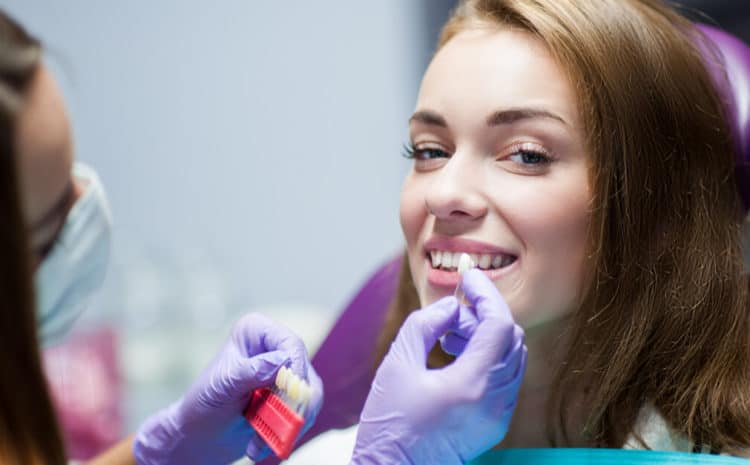
Exploring Dental Implant Materials: What you Need to Know
A few patients complain about developing a runny or stuffy nose after getting a dental implant. And it's not that unusual!
Why do I have a stuffy nose after a dental implant procedure?
When you have an implant in the front, the middle incisor, lateral incisor teeth, and those four front teeth are near to the base of your nose. The distance between the bottom of the nose and the roots is extremely short.
Many nerve endings, including the nasopalatine nerve, runs down the middle of your mouth behind your front teeth. It can be irritated slightly, almost like a tickle during the implant procedure. These tiny nerve-endings can be aggravated during the dental implant placement, causing things to be a little off for a few days. As a result, people will sometimes have a runny nose. Or they believe they are becoming ill as a result of the treatment, although they are not.
When do you develop a runny nose after dental implants?
It occurs almost immediately after the treatment and is almost always temporary. Maybe it’s from the oxygen you were given during the dental implant procedure. It can dry out the nose slightly if you’ve had it under sedation and had some supplemental oxygen supplied to you during the operation.
What should I do about the runny nose after the dental implant procedure?
If you feel stuffy afterward, taking Sudafed or just letting it run its course is usually the best option. During the recovery, you should wipe your nose rather than blow it hard. The condition is temporary, so you do not have to worry.
How will a dental implant cause a stuffy nose?
If an implant was placed too deeply and into the nose, it might cause issues where the nose’s lining or mucosa becomes irritated. In that case, your dentist has to replace the implant or cut off the top portion of the implant.
Remember that the sinus cavities are not the same as the nasal cavities. They are interconnected, but the nasal cavity in the front of the mouth is distinct. On patients who don’t have a lot of bone, a sinus lift will be performed. During the sinus lift, a layer of bone is incorporated between the nasal floor and the top of the implant to achieve a slightly taller bone. However, it is not always necessary.
It is not unusual to purposefully position the implant so that it only sits at the tip of the nose floor, as this strengthens the implant. It’s something that’s been done for a long time. Dr. Adatrow has been doing it for more than 18 years. However, if you do have a stuffy nose, remember that it will go away.
What to Do If You Have a Runny Nose After Implant Surgery
You can do a few things and some you can avoid if you have a runny or stuffy nose after dental implant surgery.
- To relieve a runny nose, gently wipe it with a tissue.
- To avoid sinus strain, sneeze with your mouth open.
- Make use of a nasal decongestant (ask your implant dentist for a recommendation)
- To help remove any hardened nasal debris, soak a Q-Tip in hydrogen peroxide and position it just inside the base of your nose.
What should you not do if you have a runny nose after implant surgery?
- Blow your nose–this increases sinus pressure, which can damage your sinuses and make them worse.
- Drink from a straw
Any of the following behaviors will cause sinus pressure to rise: blowing balloons, using your mouth to play musical instruments, swimming, or scuba diving
If you have any further questions about oral health, you can schedule a consultation with Dr. Adatrow. Dr. Adatrow has more than 18 years of experience in placing dental implants, with a success rate of over 97%, and can provide you with the best possible dental treatment. He is a Board-Certified Prosthodontist and Periodontist. Please contact our office to schedule your consultation now!
Looking for best dental implant crowns in memphis?
Dr. Adatrow can help!
If you have any further questions about oral health, you can schedule a consultation with Dr. Adatrow. Dr. Adatrow has more than 18 years of experience in placing dental implants, with a success rate of over 97%, and can provide you with the best possible dental treatment. He is a Board-Certified Prosthodontist and Periodontist. Please contact our office to schedule your consultation now!
About Advanced Dental Implant and TMJ Center
Advanced Dental Implant and TMJ Center provides personalized and specialized dental treatment for patients in Desoto County, MS and Memphis, TN areas. Dr. Pradeep Adatrow is Specialist in Dental Implants and Gum Diseases and provides patients with customized treatment plans to meet the oral health needs of his patients. Dr. Adatrow is the only practicing board-certified Periodontist and Prosthodontist in the South East United States. He earned his Doctor of Dental Surgery and Post Graduate Prosthodontic Training from the University of Tennessee College of Dentistry and his Post Graduate Training in Periodontics from Indiana University. Dr. Adatrow is board certified by the American Board of Periodontology and is a Fellow of the prestigious International College of Dentistry. Along with a devoted team of dental hygienists, assistants, and administrative staff, we strive for excellence in customer satisfaction. Please visit our website at www.advanceddentaltmj.com or call us at (662) 655-4868 to schedule a consultation.


